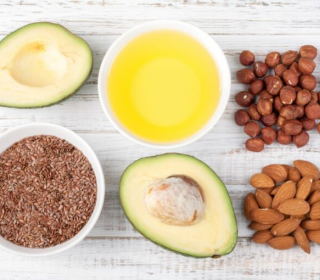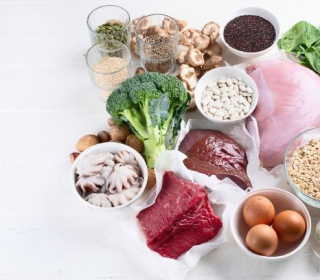Exploring the Concept of Comfort Food: Discover Mood-Boosting Foods for the Winter Season, as Revealed by a Nutritionist

Will comfort food put you in a good mood and content this winter? Rob Hobson, nutritionist, explains why comfort foods can improve our mood.
The relationship between what we eat and how we feel is complex, but there is ample evidence that it is.
There is also evidence that mood can affect many health conditions, such as PMS, depression, anxiety and insomnia. In some cases, addressing your diet may help you manage these conditions.
You can think of mood and food as a two way street. Either your mood dictates the foods you eat, or your eating habits influence your mood. This could be because you are not getting enough nutrients.
What about comfort food?
In the winter, comfort eating is a common way to improve mood. In a recent survey conducted by the wellness brand Healthspan, 23 percent of respondents said that they use comfort food to beat the winter blues.
Comfort eating, however, can cause weight gain and negatively affect mood. Some people may feel guilty after eating comfort food.
Definition of comfort food is therefore important.
Comfort food should be comforting
Rob Hobson explains that the Head of Nutrition for Healthspan, , is concerned about redefining comfort.
“Forget about sugary food, take-out and burgers, because this is a source of temporary comfort that can be laced with guilt. Comfort foods are meant to be soothing, and that means nourishing and nurturing you with key nutrients which will support your well-being and health.
“Very savoury flavors and umami can be found in foods such as soups, broths, casseroles, stews, and curries”.

Why do we crave comfort food in the winter?
Evolution may have played a role in this. Humans had to gain weight in order to stay warm before we had heating, housing and other comforts.
It is possible that this survival mechanism is innate and explains why we crave sugary and fatty foods during the winter.
It is also possible that our habitual eating habits can play a part in determining what we choose to eat. Certain foods can bring back happy memories of childhood.
What role do hormones play in our lives?
The gut could also play a part, as recent research has revealed its close connection with the brain. In the gut, around 95 percent of the body’s Serotonin is produced and 50% of Dopamine.
During digestion, the brain releases these chemicals.
Exercise and sunlight are reduced in the winter, which releases these chemicals. We may choose foods that make us feel more energized during the winter to boost our mood.
Tryptophan is an amino acid that the body needs to make serotonin.
Serotonin levels can also be low during winter, when sunlight is scarce. Low serotonin is thought to occur during menstruation, which can cause cravings.
Tryptophan is an amino acid that the body needs to make serotonin. Consuming carbohydrates helps with this, as they trigger the release of insulin that draws other amino acids to the cells. This leaves tryptophan the only amino acid in the brain. It is possible that this is why we crave carbohydrates during colder months.

What are the links between mood and certain nutrients?
A number of nutrients found in food directly affect mood. This can lead to fatigue and tiredness or even increase the risk for disorders like depression and anxiety.
Vitamin D
Sunlight is the primary source of vitamin D. Many of us are deficient in vitamin D during the winter, according to research.
Low levels of’sunshine’ vitamin have been linked to seasonal depression. This is also known as seasonal affective disorders (SAD).
Eggs, oily fish, and fortified food sources of vitamin D
Recent research has shown also that vitamin D supplementation can reduce depression symptoms.
Vitamin D can be obtained from fortified food, eggs, fish oil and other foods. Some supermarkets stock mushrooms that contain high levels of vitamin D.

B vitamins and Magnesium
The B vitamin complex, as well as magnesium, are needed by the body in order to convert food into fuel. Stress can deplete these nutrients, which can cause fatigue and a decrease in mood.
Magnesium can be essential for those who are stressed, since low levels of magnesium can lead to deficiency and increase anxiety. The depletion of magnesium and the subsequent deficiency can create a vicious cycle.
Many foods contain B vitamins, so a diverse diet is the best way to ensure you get enough. Magnesium-rich foods include nuts, seeds and leafy greens. Whole grains, beans, pulses, and whole grains are also rich sources.

High-fibre foods
To protect your mood, it is important to eat regularly.
To maintain a steady blood sugar level, it is important to include dietary fibre in your meals. Fibre slows down the release glucose from food.
It is important to choose the right foods. Change from white processed grains to wholemeal or wholegrain versions of food such as rice, pasta, and bread.
Include beans and pulses as they are rich in dietary fiber.

Iron
Iron is necessary for the production of red blood cells, which transport oxygen throughout the body. Iron deficiency can have a significant impact on your mood, as it can cause extreme fatigue and tiredness.
Women in the UK consume too little iron. Iron intake can be increased by eating foods such as red meat, oily seafood, beans, nuts and dark green vegetables.
Plan your diet to help you beat the winter blues. It is okay to indulge in comfort food, but you should choose foods that will bring you real comfort rather than those that may lead to weight gain or guilt.










